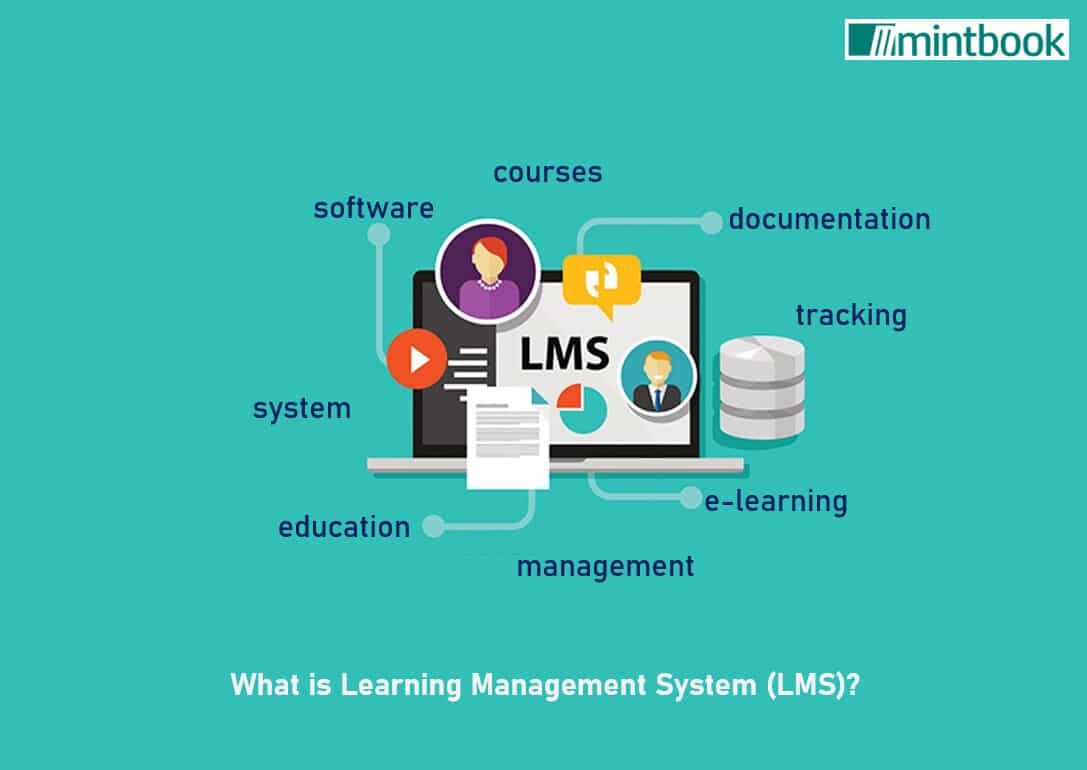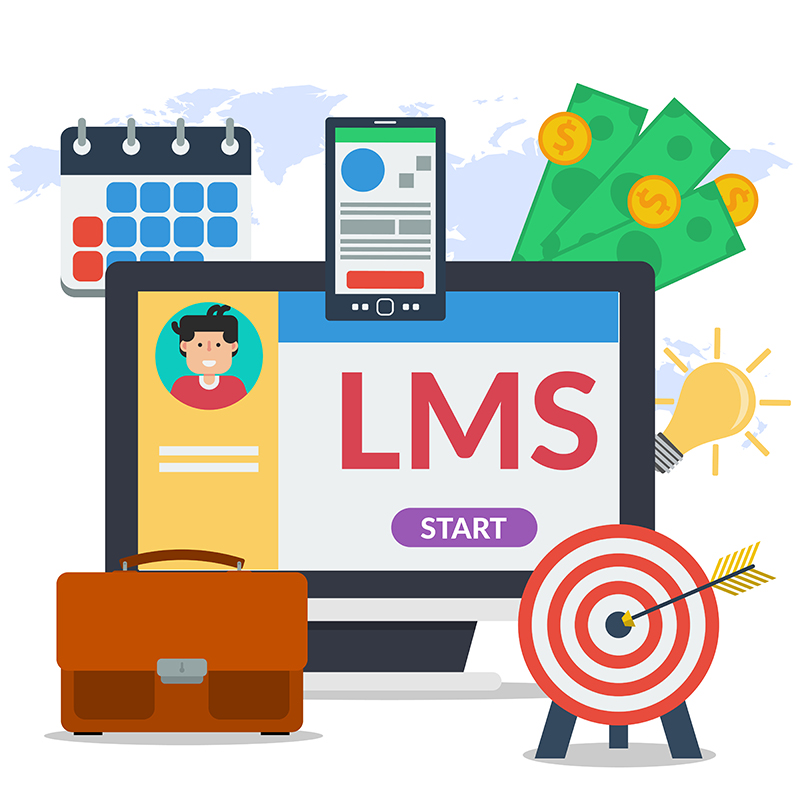Canvas Singapore: A Advanced System for Digital Learning Needs
Canvas Singapore: A Advanced System for Digital Learning Needs
Blog Article
Learning Monitoring Equipments: Enhance and Track Your Knowing Goals
In today's educational landscape, Understanding Administration Solution (LMS) stand out as pivotal tools for improving the efficiency of finding out procedures. By providing a central system that facilitates communication and customizes educational experiences, these systems are increasingly taken on in both academic and professional setups. Their analytical capacities enable for meticulous monitoring of progress versus discovering objectives, promoting accountability amongst users. Nonetheless, the question continues to be: what particular attributes can an LMS offer to maximize your knowing trip and ensure you fulfill your objectives? Discovering this further exposes critical insights that can transform your technique to education.
What Is a Learning Administration System?
An Understanding Management System (LMS) is commonly a software application made to help with the management, documentation, tracking, and distribution of educational courses or training programs. At its core, an LMS gives a centralized system where instructors and learners can connect efficiently. This system streamlines the academic procedure by permitting instructors to produce and handle web content, analyze pupil performance, and connect with students.
LMS solutions come geared up with various functions, such as program enrollment, web content administration, and reporting devices (lms singapore). They sustain varied knowing formats, consisting of e-learning, blended learning, and standard classroom instruction. Furthermore, LMS platforms can integrate multimedia components, such as videos and interactive quizzes, boosting the learning experience
The application of an LMS can differ substantially based upon the needs of the organization, varying from small companies to big schools. This flexibility makes LMS options suitable for numerous contexts, consisting of business training, professional growth, and academic education and learning. As modern technology remains to evolve, the duty of LMS in promoting effective understanding atmospheres remains progressively important, providing both teachers and learners with the essential tools to achieve their instructional objectives.
Advantages of Utilizing an LMS
Making Use Of a Learning Management System uses various benefits that enhance both mentor and learning experiences. An LMS centralizes academic sources, making it simpler for instructors to organize and provide web content to students. This streamlined accessibility to materials fosters a reliable learning atmosphere where pupils can engage with coursework at their own rate.
Additionally, LMS platforms often come furnished with analytics and reporting attributes, allowing teachers to track pupil progress and identify areas where people might require additional support. This data-driven technique not just educates instruction but likewise improves total pupil outcomes by assisting in targeted treatments.
Moreover, the flexibility of an LMS accommodates different discovering designs and choices, making it possible for the integration of multimedia sources that provide to varied trainee demands. This flexibility is particularly valuable in today's increasingly digital landscape.
Additionally, an LMS promotes partnership with discussion forums and group activities, urging peer communication and interaction. Such involvement boosts essential reasoning and analytic abilities, crucial elements of a well-rounded education. In general, the benefits of using a Learning Management System considerably add to a more arranged, reliable, and efficient academic experience for both trainers and students.
Secret Functions to Search For
When selecting a Learning Management System (LMS), several key attributes can substantially affect the efficiency of the platform. First and foremost, user-friendliness is crucial. An intuitive user interface makes sure that both learners and administrators can browse the system easily, decreasing training time and increasing involvement.
Following, robust reporting and analytics capacities are vital. These functions enable companies to track student progress, analyze program effectiveness, and recognize areas for improvement. Detailed understandings assist in informed decision-making and boost the general learning experience.
Furthermore, scalability is an important consideration. The LMS should have the ability to fit a raising number of customers and content without endangering performance. This versatility ensures the system can expand alongside the organization.
Integration with existing tools and platforms is likewise crucial. An LMS that effortlessly gets in touch with various other software program, such as HR systems or content authoring devices, boosts workflow efficiency and information Website uniformity.
Last but not least, consider mobile compatibility. A mobile-friendly LMS enables students to accessibility products anytime, anywhere, advertising a much more versatile discovering atmosphere. lms singapore. By prioritizing these essential features, organizations can pick an LMS that properly fulfills their instructional objectives
Executing an LMS in Your Workflow
Selecting the right Understanding Monitoring System (LMS) is just the initial step; effective execution within your process is similarly essential. To guarantee a smooth transition, start by plainly specifying your knowing goals and desired end results. Include crucial stakeholders early to garner assistance and address potential concerns.
Following, examine existing processes and recognize exactly how the LMS can integrate flawlessly. This includes mapping out operations, figuring out which features of the LMS will certainly be used, and assigning duties for content production, administration, and user gain access to. Providing ample training for all individuals is essential; take into consideration tailored sessions to resolve different ability levels and duties.

Last but not least, preserve open lines of communication throughout the implementation procedure. Routine check-ins with users will certainly assist identify any kind of difficulties and facilitate ongoing assistance, making sure that the LMS ends up being an integral component of your knowing ecosystem.
Ideal Practices for Goal Tracking
To successfully track learning objectives within your LMS, it's necessary to establish clear metrics and standards that line up with your educational purposes. Begin by defining details, quantifiable, achievable, appropriate, and time-bound (SMART) objectives for students. This clearness will allow both trainers and students to check development effectively.
Make use of the built-in analytics devices of your LMS to gather information on course completion prices, assessment scores, and interaction degrees. Routinely examine these metrics to identify patterns, locations for improvement, and possible roadblocks. Integrating developmental assessments throughout the knowing procedure can give timely responses, enabling adjustments to be made in real-time.
Furthermore, encourage self-tracking among learners by giving them with tools such as progression charts or control panels. This cultivates accountability and motivates them to take possession of their academic journey.
Finally, connect frequently with learners regarding their development. Set up check-ins or comments sessions can aid reinforce objectives and encourage dialogue regarding difficulties dealt with. By applying these ideal practices, organizations can make certain effective goal tracking, eventually boosting the total learning experience and outcomes within the LMS his explanation framework.

Conclusion
In recap, Discovering More Bonuses Monitoring Equipment (LMS) offer as vital devices for boosting educational experiences by streamlining resources and promoting communication in between instructors and students. The advantages of making use of an LMS, consisting of durable analytics and adaptable analyses, add to personalized learning outcomes. Implementing an LMS effectively within educational workflows and adhering to best practices for objective monitoring can dramatically boost liability and interaction. Eventually, an LMS is necessary for accomplishing academic objectives and fostering a conducive understanding setting.
Report this page